
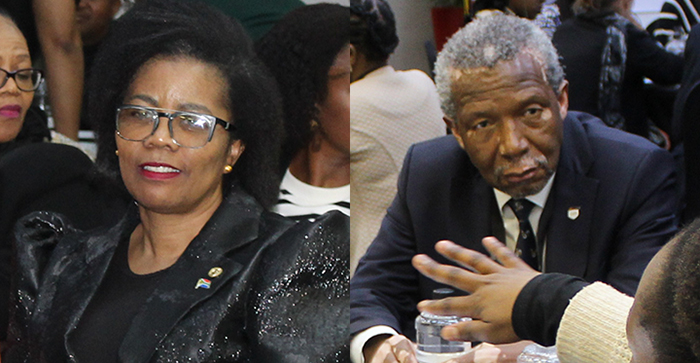
Among the members of Unisa’s leadership corps participating in the dialogue on Winning the future through education and a healthy nation were Prof Puleng LenkaBula, Principal and Vice-Chancellor, and Prof Solomon Magano, Vice-Principal: Institutional Development
Following the official opening of the first National Convention of the National Dialogue, hosted by Unisa, dialogue labs were held to model how the citizen-led conversations about the National Dialogue will unfold.
Each breakaway session, comprising dignitaries, scholars, civic organisations, and both primary and secondary school learners, was tasked to roadmap the following themes:
In a lively and constructive discussion on theme 3, Winning the future through education and a healthy nation, voices from the floor echoed that the dialogue must be for the people, by the people, and that it must uphold its mandate, which is to be citizen-led and action-driven.
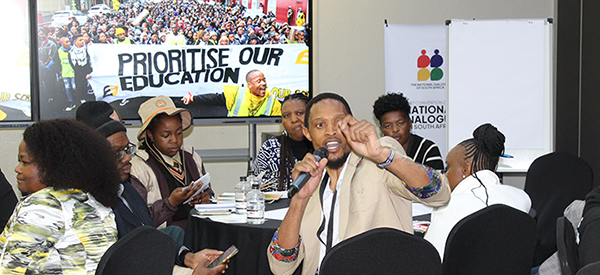
A member of the dialogue lab voicing concerns about the barriers to quality education
The theme underscored the significance of overcoming barriers to quality education across the board, strongly led by Equal Education, a youth-led mass democratic movement of learners, post-school youth, parents, teachers and community members who use mobilisation and public action, supported by careful research, to empower young activists and ensure equality in South African education.
The organisation’s General Secretary, Noncedo Madubedube, emphasised a litany of barriers faced by South Africa’s education sector, including overcrowding, malnutrition, upholding family values, crime, health and sports, sexual abuse by teachers, disproportionate teacher-learner ratios, bullying and rebuilding trust with the government-led institutions. Madubedube called for each school to have a residential psychologist available to both learners and teachers.
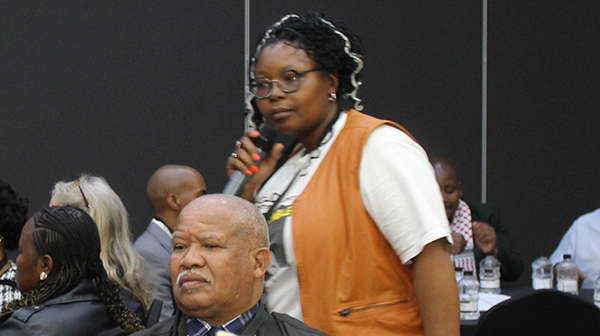
Noncedo Madubedube, General Secretary of Equal Education
The discussion sessions will continue on 16 August 2025, when responses from the dialogue labs are expected to be consolidated, summarised and crafted to create a roadmap for citizen-led dialogues on each given theme, followed by pledges of contributions by representative organisations.
Following the two-day convention, the dialogue process will hit the ground through several sectoral engagements and community dialogues across all provinces, ensuring that voices from diverse backgrounds are heard to guarantee a participatory process and contribution by all citizens to directly shape the agenda and outcomes of the National Dialogue.
Read also: Ramaphosa reaffirms that National Dialogue belongs to all South Africans
* By Godfrey Madibane, Acting Journalist, Department of Institutional Advancement
Publish date: 2025-08-16 00:00:00.0
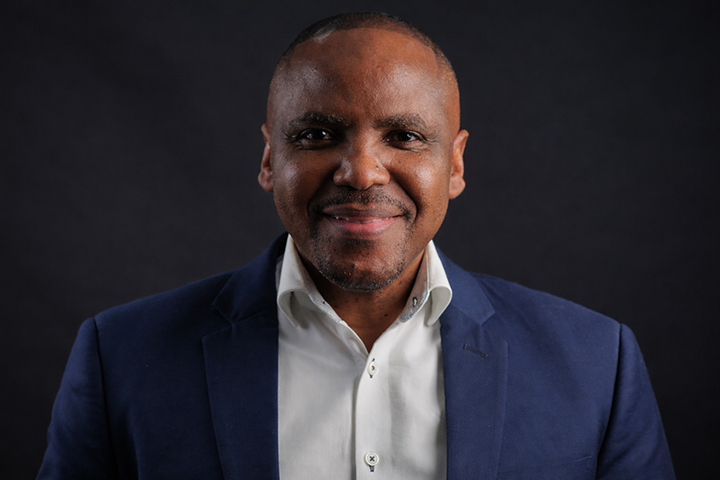 National leader in mathematics education aims to improve outcomes
National leader in mathematics education aims to improve outcomes
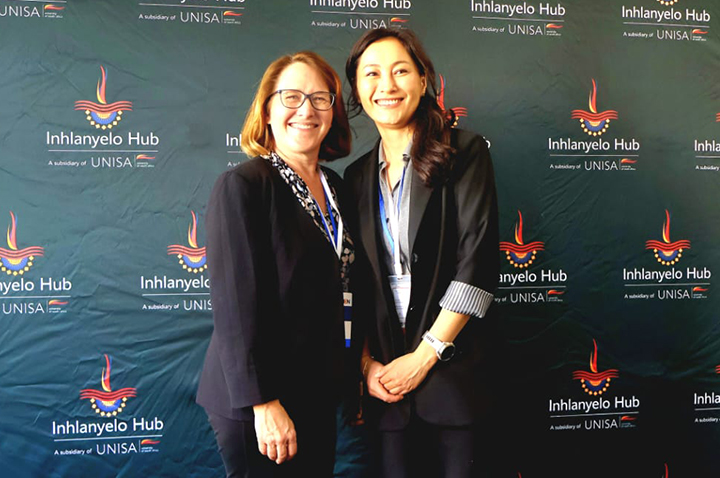 Unisa roundtable focuses on empowering SA women to lead in innovation
Unisa roundtable focuses on empowering SA women to lead in innovation
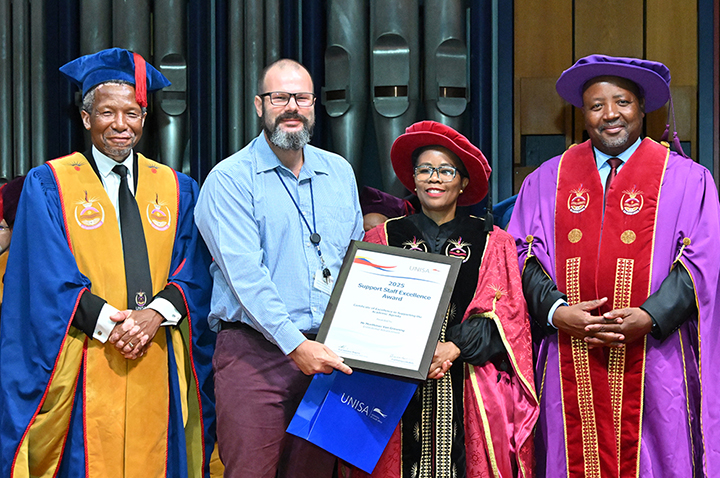 Unisan recognised for web excellence
Unisan recognised for web excellence
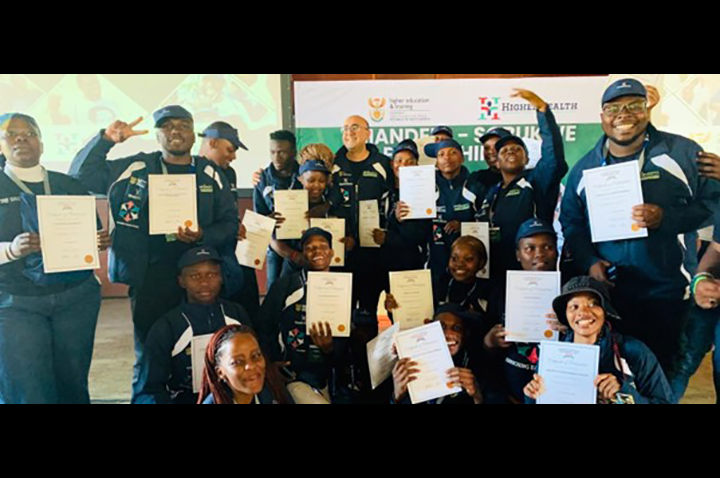 Office of the Dean of Students participates in leadership camp
Office of the Dean of Students participates in leadership camp
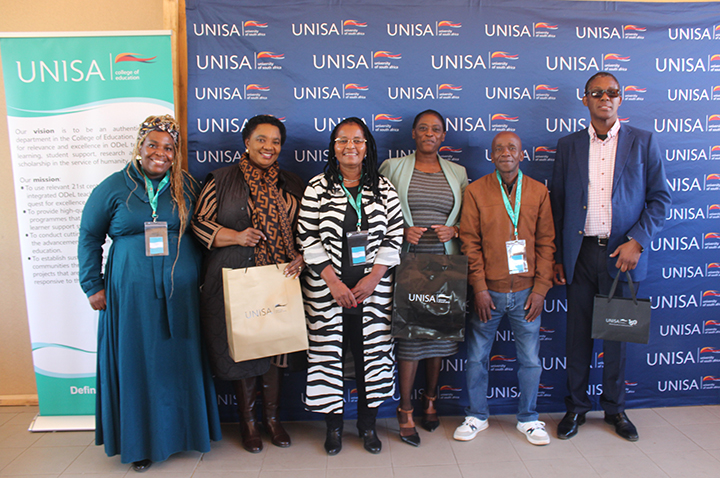 Unisa project fosters digital and pedagogical innovation in Limpopo schools
Unisa project fosters digital and pedagogical innovation in Limpopo schools